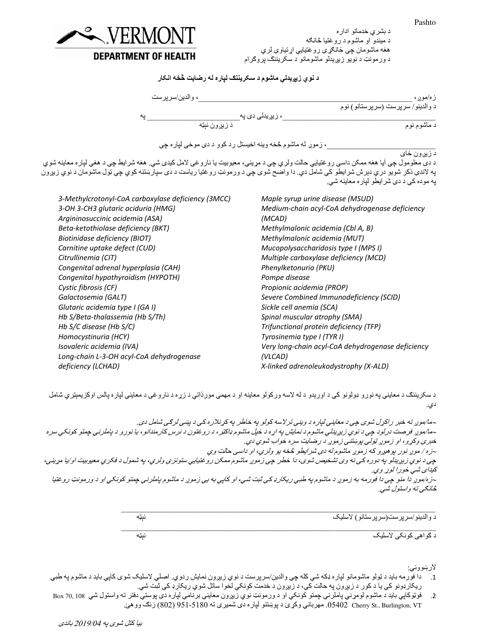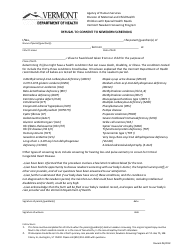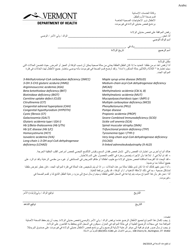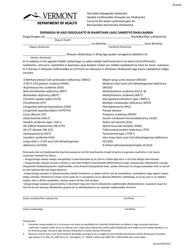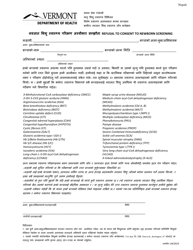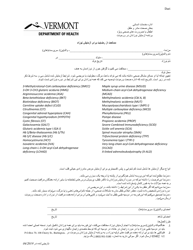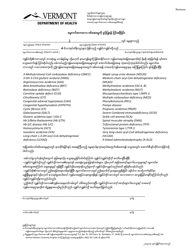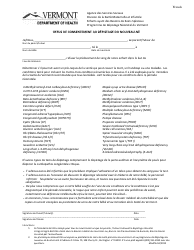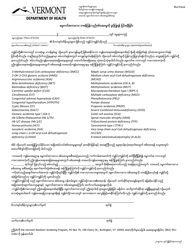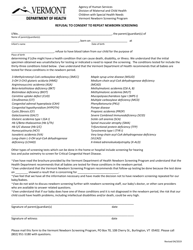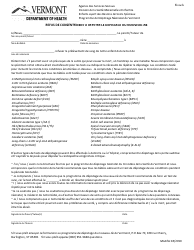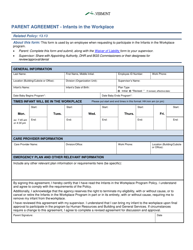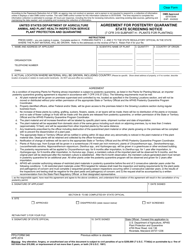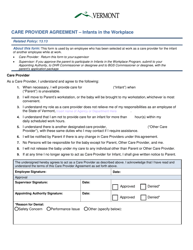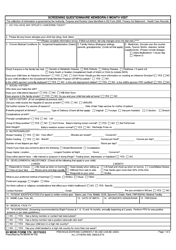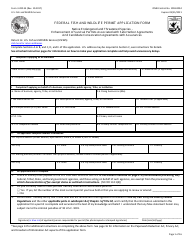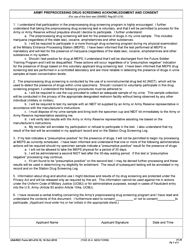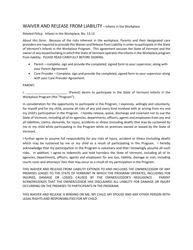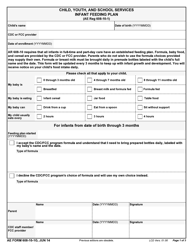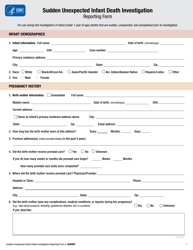Refusal to Consent to Newborn Screening - Vermont (Pashto)
This is a legal document that was released by the Vermont Department of Health - a government authority operating within Vermont.
The document is provided in Pashto.
FAQ
Q: What is newborn screening?
A: Newborn screening is a routine test performed shortly after a baby is born to check for certain genetic, metabolic, and congenital disorders.
Q: Why is newborn screening important?
A: Newborn screening can help identify these disorders early so that treatment can be started promptly, preventing serious health problems or even death.
Q: Why would someone refuse to consent to newborn screening?
A: There can be various reasons someone may refuse to consent to newborn screening, including religious beliefs, concerns about privacy, or personal preferences.
Q: What happens if a parent refuses to consent to newborn screening in Vermont?
A: If a parent refuses to consent to newborn screening in Vermont, the health care provider will document the refusal but the screening will not be performed.
Q: Is newborn screening mandatory in the United States?
A: Yes, newborn screening is mandatory in all 50 states in the United States, including Vermont.
Q: Can a parent change their mind and consent to newborn screening later?
A: Yes, a parent can change their mind and consent to newborn screening later, even if they initially refused.
Q: What disorders are screened for in newborn screening?
A: Newborn screening tests may vary by state, but they generally screen for disorders such as phenylketonuria (PKU), cystic fibrosis, hypothyroidism, sickle cell disease, and many others.
Q: Is newborn screening covered by insurance?
A: In most cases, newborn screening is covered by insurance. However, it's always a good idea to check with your insurance provider to confirm coverage.
Form Details:
- Released on April 1, 2019;
- The latest edition currently provided by the Vermont Department of Health;
- Ready to use and print;
- Easy to customize;
- Compatible with most PDF-viewing applications;
Download a printable version of the form by clicking the link below or browse more documents and templates provided by the Vermont Department of Health.
